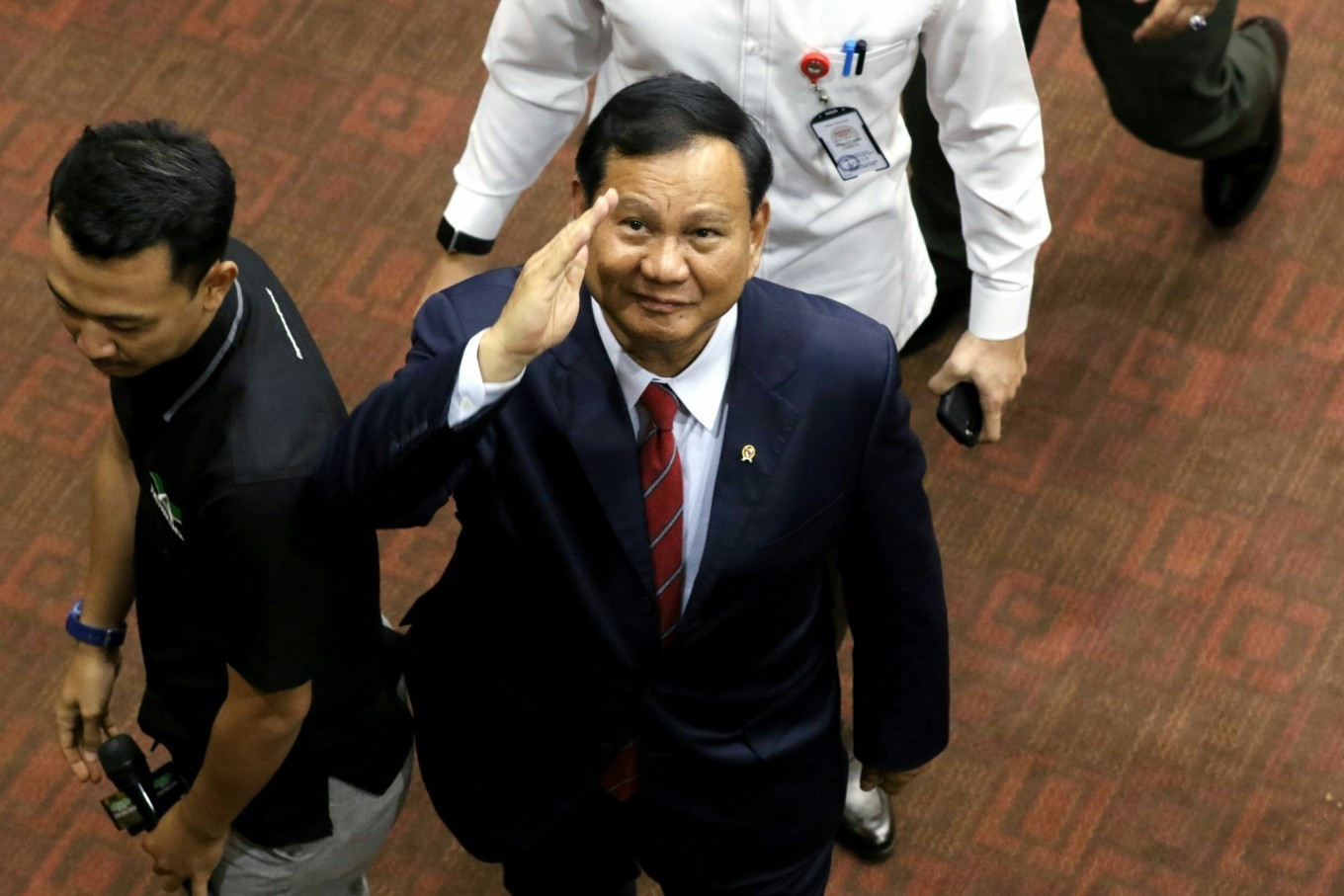Popular Reads
Top Results
Can't find what you're looking for?
View all search resultsPopular Reads
Top Results
Can't find what you're looking for?
View all search resultsAnalysis: Housing ministry re-established to construct 15 million homes
Change text size
Gift Premium Articles
to Anyone
 Defense Minister Prabowo Subianto attended the inaugural working meeting with the DPR's Commission I at the Senayan Parliament Complex, Jakarta, Monday (11/11/2019). A working meeting between the DPR and the Ministry of Defense (Kemhan) discussed the 2020 Ministry of Defense work plan and its budget support. (JP/Dhoni Setiawan))
Defense Minister Prabowo Subianto attended the inaugural working meeting with the DPR's Commission I at the Senayan Parliament Complex, Jakarta, Monday (11/11/2019). A working meeting between the DPR and the Ministry of Defense (Kemhan) discussed the 2020 Ministry of Defense work plan and its budget support. (JP/Dhoni Setiawan))
P
resident-elect Prabowo Subianto intends to divide the Public Development and Housing (PUPR) Ministry into two separate entities: one focused exclusively on housing, and the other on infrastructure development, effectively undoing the 2014 merger that created the PUPR Ministry. This decision underscores the new administration's shift in priorities, placing greater emphasis on the housing sector, with an ambitious target to construct 15 million homes by the end of Prabowo's term.
Hashim Djojohadikusumo, Prabowo’s younger brother and head of the housing task force, explains the need for a specialized housing ministry, noting that a lack of affordable housing plays a great role in the recent decline of Indonesia’s middle class. The administration believes that revitalizing the housing sector could help reverse this trend and generate multiplier effects to drive economic growth.
The PUPR Ministry was established in 2014 by combining the Public Works Ministry with the Housing Ministry. At the time, the PUPR Ministry was better positioned to address Indonesia’s growing infrastructure needs, including road construction, water resource management and public transport development.
Since then, the demand for housing has grown significantly, and the PUPR has been struggling to accommodate the growing need while simultaneously managing infrastructure projects. For example, the Association of Housing Development in Indonesia (APERSI) members have complained that the government’s protected agricultural land (LSD) policy has been overlapping with housing property land in the general spatial plan (RUTR), leading to conflicts and delays in property development.
Once appointed, the new housing minister will be responsible for constructing one million apartments in cities and two million houses in villages annually. To support this effort, the draft of the 2025 state budget (RAPBN) has allocated an initial fund of Rp 53 trillion ($US3.44 billion).
In the meantime, the housing task force is engaging various stakeholders for collaboration, including state-owned mortgage lender Bank Tabungan Negara (Bank BTN), the chairman of the chamber of commerce’s (KADIN) advisory board, the national urban development corporation (Perumnas), Real Estate Indonesia (REI) and Sarana Multigriya Finansial (SMF).
Hashim has also mentioned that value-added taxes (VAT) on housing will be removed once Prabowo takes office. The current VAT rate of 11 percent, set to increase to 12 percent next year, has been a significant barrier to affordable housing. He also hinted that the housing sector might receive further incentives, such as reduced notary fees, but VAT exemptions are relatively easier to implement in the short term.


















